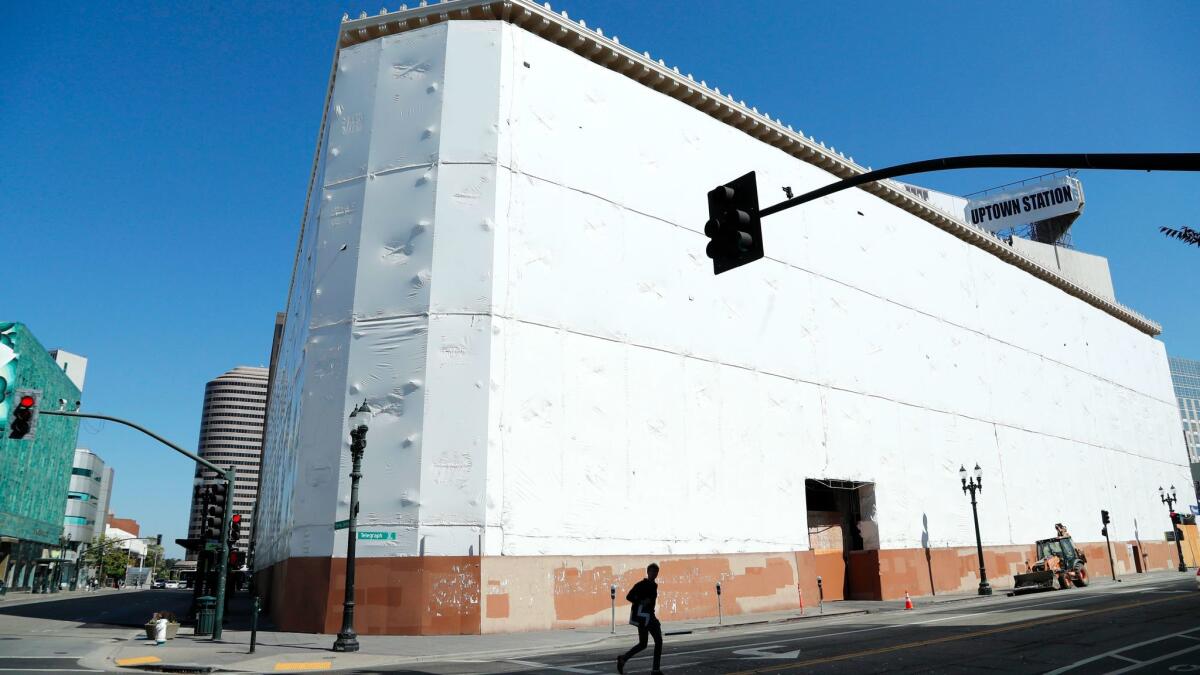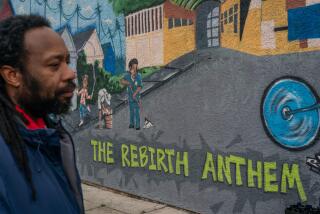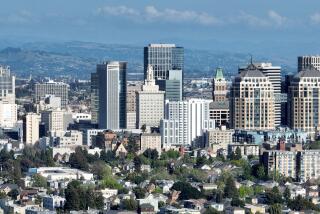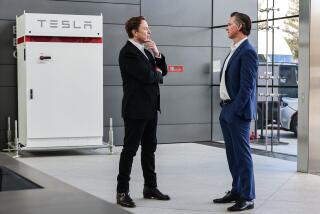Uber halts Oakland expansion, considers selling building

Uber pumped the brakes on its expansion into Oakland, confirming Thursday evening that it is exploring the sale of a building it bought in the city’s Uptown neighborhood to serve as one of its main offices only two years ago.
A sale of the $123.5-million building, which formerly was a Sears department store, would allow the ride-hailing company to consolidate its 3,000 Bay Area employees in a new headquarters still under construction in the Mission Bay neighborhood of San Francisco.
In an email to Oakland community members, Uber said that “it’s pretty normal for property owners to look for strategic investments and partnerships” and that it is “considering several possibilities for our real estate footprint, including a sale of Uptown Station.”
News that the company was seeking a possible real estate sale was first reported by the San Francisco Business Times.
The decision comes as Uber seeks to cut losses and get to profitability, according to a person with knowledge of the matter who was not authorized to speak publicly. And for a company that’s hitting reset on its culture, keeping employees in one place rather than spreading them across multiple offices is seen internally as a smarter move.
“As we look to strengthen our financial position so we can better serve riders and drivers in the long term, we’re exploring several options for Uptown Station, including a sale,” an Uber spokeswoman said in a statement. “We remain committed to serving Oakland and our broader hometown Bay Area community.”
The announcement is bittersweet to some Oakland community organizers, many of whom initially had opposed Uber’s arrival in the East Bay for fear it would hasten gentrification, but also hoped the company would create jobs and support local programs.
Grass-roots organizations such as the Greenlining Institute, a nonprofit focused on racial and economic justice, had in recent months mounted a “No Uber Oakland” campaign, pressuring the ride-hailing firm to do more to promote affordable housing in the region, to improve working conditions for drivers and to hire locally and promote diversity.
Uber made some donations to local initiatives, including a $70,000 college fund to assist graduates of Oakland Unified School District and $30,000 in free rides to a variety of Oakland organizations. But those donations didn’t feel like a serious effort, according to Orson Aguilar, the president of the Greenlining Institute, who said Thursday that Uber’s plan to abandon Uptown Station was evidence that it never “had any real commitment to Oakland, despite occasional pleasant rhetoric.”
“Still, we never gave up hope that Uber would sit down and work with the Oakland community to create something that would be good for the company and for Oakland,” Aguilar said. “Uber, sadly, never had any interest in a real partnership with Oakland.”
Uber, which is headquartered on Market Street in downtown San Francisco, first indicated it was stepping back its Oakland ambitions in March, announcing then that it would relocate only a few hundred employees to Oakland, consolidating the rest in Mission Bay.
When the company bought Uptown Station, Oakland Mayor Libby Schaaf called it a “game changer” for the city, whose proximity to San Francisco has pushed up residents’ cost of living without the benefits of job creation. Proponents of the move hoped that Uber’s presence would attract job-creating technology companies that would employ locals.
When Uber downsized its move in March, the mayor remained optimistic, saying in a statement to the San Jose Mercury News that the shift “does not negate the fact this prime office location will be put back into full use and made available for rent to other businesses and nonprofits.”
The mayor’s office did not immediately respond to a request for comment.
Twitter: @traceylien







